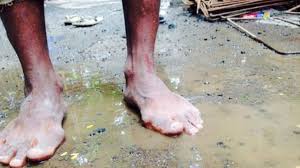Leptospirosis : Outbreak

A severe Leptospirosis outbreak has emerged as a major public health concern across Kerala.
- Leptospirosis, also known as “rat fever”, is a rare bacterial infection that affects people and animals.
- The disease is caused by a bacterium called Leptospira interrogans, or Leptospira.
- It is most common in tropical areas and warmer climates with high rainfall each year.
- The carriers of the disease can be either wild or domestic animals, including rodents, cattle, pigs, and dogs.
- Infected animals spread the bacteria through their urine. They may continue to urinate the bacteria into the environment for several months or years.
- The bacteria can survive in contaminated water or soil for weeks to months.
It is not spread from person to person, except in very rare cases. - Symptoms: It generally takes 2-30 days to get sick after having contact with the bacteria. Leptospirosis may occur in two phases.
- In the first phase, people may have fever, chills, headache, muscle aches, vomiting, or diarrhea. The person may feel better for a while but become ill again.
- Some people may suffer a more severe second phase with kidney or liver failure, or inflammation of the membrane around the brain and spinal cord (meningitis).
- Treatment: It can be treated with antibiotics, including penicillin and doxycycline.




